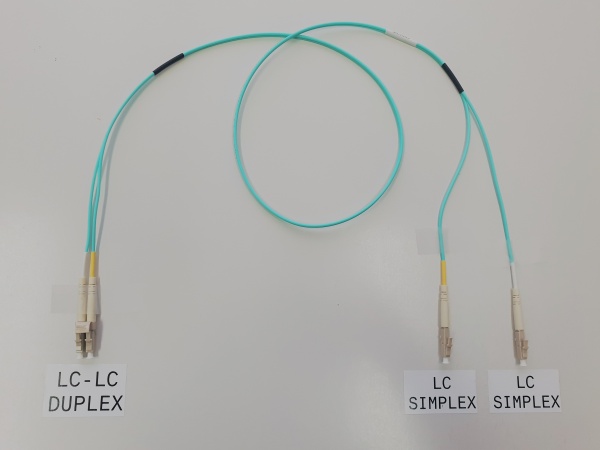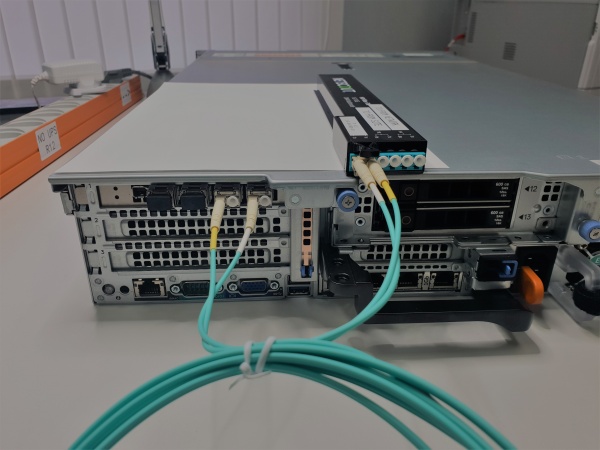Connecting a passive TAP: Difference between revisions
Jump to navigation
Jump to search
No edit summary |
No edit summary |
||
| Line 23: | Line 23: | ||
To connect to the NETSCOUT Accelerator NIC, you need a LC-LC-duplex to 2x LC-simplex fan-out cable. It is very easy to make a cable like that. | To connect to the NETSCOUT Accelerator NIC, you need a LC-LC-duplex to 2x LC-simplex fan-out cable. It is very easy to make a cable like that. | ||
| |||
[[File:LCLCFanOut.jpg|border|center|600px|LCLCFanOut.jpg]] | |||
| | ||
| Line 29: | Line 33: | ||
Both LC-simplex connectors need to be connected to the input of two separate SFP/SFP+ ports on the NETSCOUT Accelerator NIC on the back of the appliance. | Both LC-simplex connectors need to be connected to the input of two separate SFP/SFP+ ports on the NETSCOUT Accelerator NIC on the back of the appliance. | ||
| |||
[[File:TAPConnectNIC.jpg|border|center|600px|TAPConnectNIC.jpg]] | |||
| |||
Revision as of 16:37, 10 March 2019
Introduction
Multi-mode and single-mode passive Fiber Optic TAPs require little or no configuration. While cabling the network - and site ports is straight forward, the cabling between the TAP output and the NETSCOUT Accelerator NIC is a bit special.
Solution
| Inspect and possibly clean all fiber optic connectors and ports before making a connection. |
TAP internal cabling
Cables required
The two fibers of the duplex LC-LC output of the TAP - indicated with "monitor" - are both used for transmission.
To connect to the NETSCOUT Accelerator NIC, you need a LC-LC-duplex to 2x LC-simplex fan-out cable. It is very easy to make a cable like that.

Connecting the TAP to the NETSCOUT accelerator NIC
Both LC-simplex connectors need to be connected to the input of two separate SFP/SFP+ ports on the NETSCOUT Accelerator NIC on the back of the appliance.
